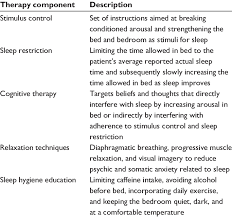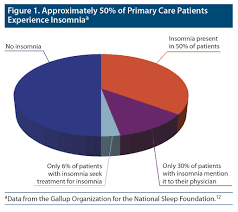The Power of Natural Remedies: A Guide to Treating Insomnia
Insomnia, the inability to fall asleep or stay asleep, can be a frustrating and debilitating condition that affects millions of people worldwide. While there are various medications available to treat insomnia, many individuals prefer natural remedies that can help promote restful sleep without the risk of side effects.
Establish a Relaxing Bedtime Routine
Creating a calming bedtime routine can signal to your body that it’s time to wind down and prepare for sleep. This may include activities such as reading a book, taking a warm bath, or practicing relaxation techniques like deep breathing or meditation.
Maintain a Consistent Sleep Schedule
Going to bed and waking up at the same time every day helps regulate your body’s internal clock and can improve the quality of your sleep over time. Consistency is key when it comes to establishing healthy sleep patterns.
Limit Exposure to Screens Before Bed
The blue light emitted by electronic devices like smartphones and tablets can interfere with your body’s production of melatonin, a hormone that regulates sleep. Try to avoid screens at least an hour before bedtime to promote better sleep quality.
Create a Comfortable Sleep Environment
Your bedroom should be conducive to sleep, with a comfortable mattress and pillows, adequate room temperature, and minimal noise and light disturbances. Investing in blackout curtains or white noise machines can help create an optimal sleeping environment.
Explore Herbal Remedies
Natural herbs like valerian root, chamomile, and lavender have been used for centuries to promote relaxation and improve sleep quality. These herbs can be consumed as teas or taken in supplement form to help alleviate insomnia symptoms.
Practice Relaxation Techniques
Techniques such as progressive muscle relaxation, guided imagery, and mindfulness meditation can help calm your mind and body before bedtime, making it easier to drift off to sleep naturally.
While natural remedies can be effective in treating mild cases of insomnia, it’s important to consult with a healthcare provider if you experience chronic or severe sleep disturbances. They can help identify any underlying issues contributing to your insomnia and recommend appropriate treatment options.
By incorporating these natural remedies into your daily routine and making healthy lifestyle choices, you can take proactive steps toward achieving restful and rejuvenating sleep without relying on medication.
9 Natural Strategies to Overcome Insomnia and Enhance Your Sleep Quality
- Establish a regular sleep schedule
- Create a relaxing bedtime routine
- Avoid caffeine and heavy meals before bed
- Keep your bedroom dark, quiet, and cool
- Limit exposure to screens before bedtime
- Try relaxation techniques like deep breathing or meditation
- Exercise regularly but not too close to bedtime
- Consider herbal remedies like valerian root or chamomile tea
- Consult a healthcare professional if insomnia persists
Establish a regular sleep schedule
Establishing a regular sleep schedule is a key component in treating insomnia naturally. By going to bed and waking up at the same time every day, you help regulate your body’s internal clock, known as the circadian rhythm. This consistency reinforces your body’s sleep-wake cycle, making it easier to fall asleep and stay asleep throughout the night. Over time, maintaining a regular sleep schedule can improve the quality of your sleep and promote overall well-being by ensuring you get the rest your body needs to function optimally.
Create a relaxing bedtime routine
Creating a relaxing bedtime routine is a key natural remedy for insomnia. By establishing calming activities before sleep, such as reading a book, taking a warm bath, or practicing relaxation techniques like deep breathing or meditation, you signal to your body that it’s time to wind down and prepare for rest. This routine helps to reduce stress and anxiety levels, making it easier to transition into a peaceful and restful sleep. Consistency in bedtime rituals can play a significant role in improving sleep quality and promoting overall well-being.
Avoid caffeine and heavy meals before bed
Avoiding caffeine and heavy meals before bed is a crucial tip for promoting restful sleep. Caffeine is a stimulant that can interfere with your body’s ability to wind down and relax, making it harder to fall asleep. Similarly, consuming heavy or spicy meals close to bedtime can lead to indigestion and discomfort, making it difficult to get quality rest. By steering clear of caffeine and heavy meals in the hours leading up to bedtime, you can support your body’s natural sleep-wake cycle and improve your chances of experiencing a peaceful night’s sleep.
Keep your bedroom dark, quiet, and cool
Creating an optimal sleep environment is crucial for combating insomnia naturally. Keeping your bedroom dark, quiet, and cool can help signal to your body that it’s time to rest. Darkness promotes the production of melatonin, the hormone that regulates sleep, while minimizing noise disturbances and maintaining a cool temperature can enhance the quality of your sleep. By prioritizing these factors in your bedroom environment, you can create a peaceful oasis conducive to a restful night’s sleep.
Limit exposure to screens before bedtime
Limiting exposure to screens before bedtime is a crucial tip for improving sleep quality and combating insomnia. The blue light emitted by electronic devices like smartphones, tablets, and computers can disrupt the production of melatonin, the hormone responsible for regulating our sleep-wake cycle. By avoiding screens at least an hour before bedtime, we can help our bodies naturally wind down and prepare for restful sleep. This simple adjustment to our evening routine can have a significant impact on our ability to fall asleep easily and enjoy a more rejuvenating night’s rest.
Try relaxation techniques like deep breathing or meditation
One effective tip for naturally treating insomnia is to incorporate relaxation techniques such as deep breathing or meditation into your bedtime routine. By practicing deep breathing exercises or engaging in meditation before sleep, you can calm your mind and body, reduce stress and anxiety levels, and create a peaceful environment conducive to falling asleep. These techniques help relax your nervous system, slow down racing thoughts, and promote a sense of tranquility that can lead to improved sleep quality and duration.
Exercise regularly but not too close to bedtime
Regular exercise is a valuable natural remedy for insomnia, promoting better sleep quality and overall well-being. However, it is essential to time your workouts wisely, avoiding vigorous physical activity close to bedtime. Exercise raises your body temperature and stimulates adrenaline production, making it harder to wind down and fall asleep quickly. By incorporating exercise into your daily routine earlier in the day, you can reap the benefits of improved sleep without disrupting your natural sleep-wake cycle.
Consider herbal remedies like valerian root or chamomile tea
When seeking natural remedies for insomnia, exploring herbal options like valerian root or chamomile tea can offer a gentle and effective solution. Valerian root is known for its calming properties that can help reduce anxiety and promote relaxation, making it easier to fall asleep. Chamomile tea, on the other hand, is a soothing beverage that can aid in relieving stress and promoting better sleep quality. Incorporating these herbal remedies into your bedtime routine may provide a natural and holistic approach to addressing insomnia symptoms.
Consult a healthcare professional if insomnia persists
It is crucial to seek guidance from a healthcare professional if insomnia persists despite trying natural remedies. Chronic sleep disturbances may indicate underlying health issues that require medical attention. A healthcare provider can conduct a thorough evaluation to determine the root cause of your insomnia and recommend appropriate treatment options tailored to your specific needs. Consulting a professional ensures that you receive personalized care and support in managing your sleep disorder effectively for long-term health and well-being.




